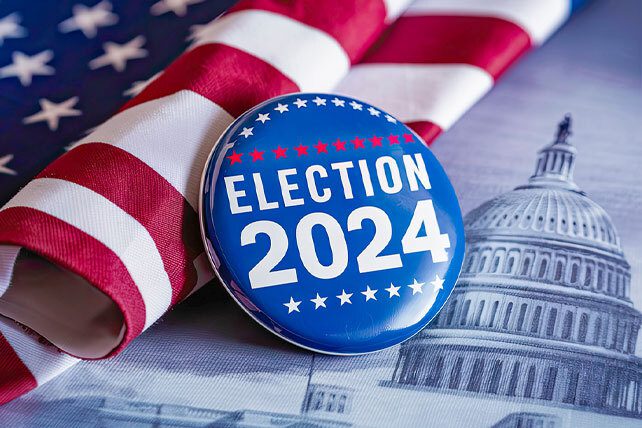3. Be a Non-Anxious Presence
A non-anxious presence is the sort of person who people enjoy being around because their presence has a healing effect rather than an agitating one. Most of us have been around the type of person who, after having spent time with them, feel our stress level elevated. We’ve also likely been around the type of person who, after having spent time with them, feel refreshed and ministered to at a soul level.
If we allow too much of the political discourse to burrow its way into our soul, we will find ourselves being more of an anxious presence in people’s lives. We exacerbate the fear, the polarization, and the hostility in our present discourse because we have allowed our souls to feed from bosom of cable news and politically-minded social media influencers.
For church leaders, this often makes its way into our sermons and the way we lead. We may find ourselves taking precious time in the pulpit away from orienting people to the way of Jesus and instead complaining about the moral ills of people who aren’t even in the room.
4. Seek the Alternative Way Over the Middle Way
Too often we confuse being Kingdom-minded with being non-partisan or politically “independent.” In a well-meaning attempt to not give way to one-sided discourse, we attempt to “both sides” everything. If we feel it is necessary to speak up about injustice or immorality, we try to placate to the middle so as not to offend. Or worse yet, we only speak up about issues in situations where speaking up will be well-received by those in the room. Consequently, we may find ourselves speaking “prophetically” on certain social issues while being silent on others.
But the way of the Kingdom is not found by placating to the middle. It is a convictional vision for human flourishing in light of the soon-coming King that will likely both irritate and identify with various political causes from time to time, but it marches on regardless of whether of where it lands in the political discourse. This has a disorienting effect on people who think only in left/right, progressive/conservative binaries because it transcends those binaries instead of seeking to find a via media between them.
5. Think Little
One of the most significant disconnects of American politics is how much time, energy, money, and thought we disproportionately give to national issues at the expense of local action. We will break decades long friendships over what a national politician said about the public education but won’t show up to the board meeting of our local school. We’ll happily take to social media to complain about what Washington is (or is not) doing about issue A or B, but stop short of enduring the slightest inconvenience in our own lives to embody the change we wish to see.
While I’m not suggesting that national issues or informing ourselves about candidates for federal office aren’t important, we would do well to, as Wendell Berry says in his so-named 1970 essay, think little. Berry explains:
If we are to hope to correct our abuses of each other and of other races and of our land, and if our effort to correct these abuses is to be more than a political fad that will in the long run be only another form of abuse, then we are going to have to go far beyond public protest and political action. We are going to have to rebuild the substance and the integrity of private life in this country. We are going to have to gather up the fragments of knowledge and responsibility that we have parceled out to the bureaus and the corporations and the specialists, and put those fragments back together in our minds and in our families and households and neighborhoods. We need better government, no doubt about it. But we also need better minds, better friendships, better marriages, better communities. We need persons and households that do not have to wait upon organizations, but can make necessary changes in themselves, on their own.2
Berry’s point should be convicting to us all. While large-scale movements and organizational action is important, we severely overestimate its ability to produce change. Real, lasting, and substantive change happens in the slow, patient work of God’s people incarnated in and actively involved with the communities to which God has called it. As church leaders, we are far too often consumed with “changing the world” for Jesus, that we overlook impacting our neighborhood for Jesus.
If we are to take seriously the call of God’s missionary people to be a local community walking in the way of Jesus as a testimony to the gospel, we must consider how our absence of direct involvement in our community is a serious missed opportunity—and how small, subtle changes in our involvement can yield tremendous fruit in the communities to which God has called us.
2 Berry, Wendell. “Think Little,” The World Ending Fire (Counterpoint, 2017), 53-54.

